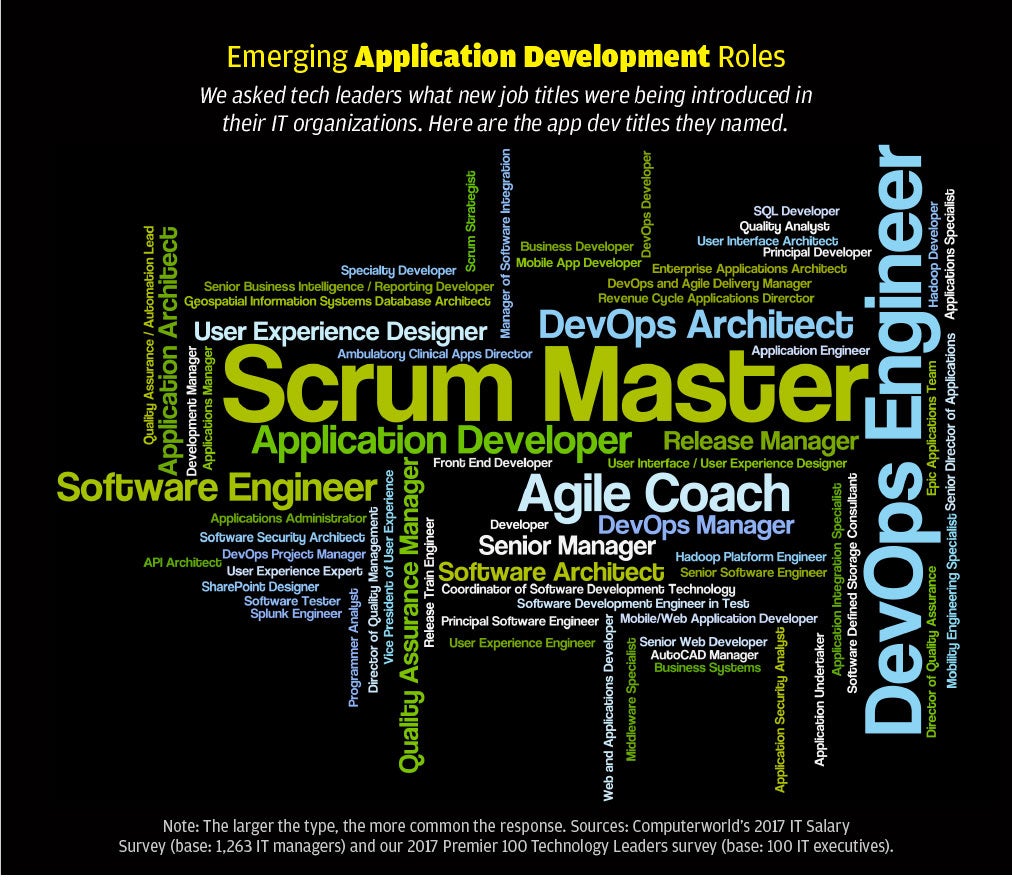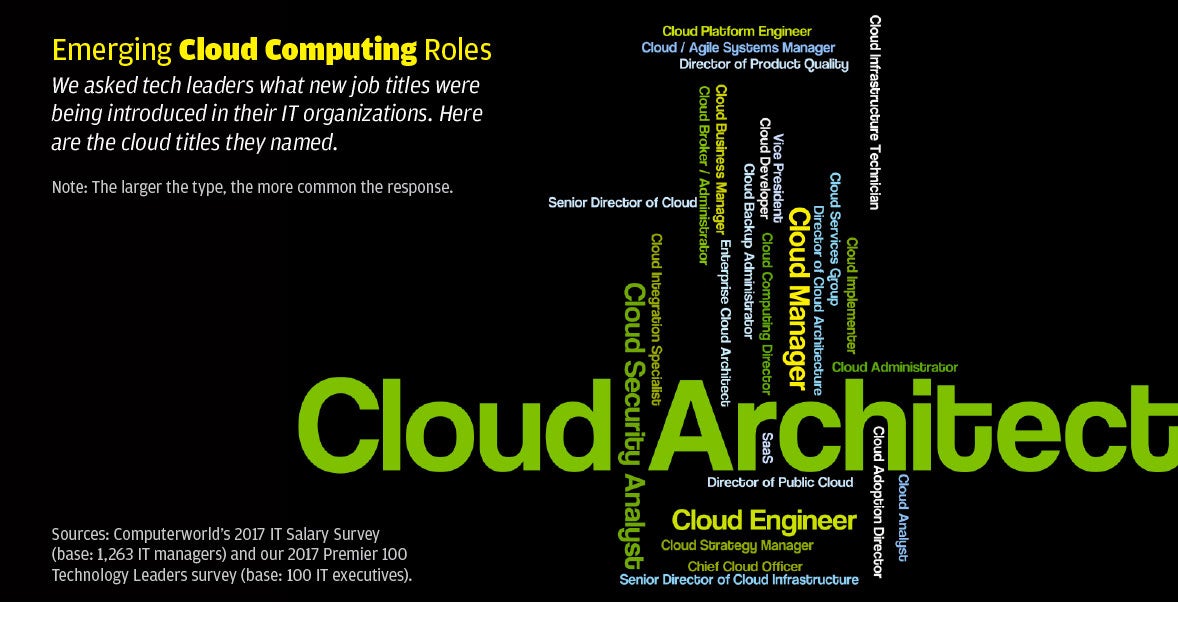Jack Sunderman has had a virtual “help wanted” sign out for nearly six months.
Sunderman, CIO and CTO at Medac, a medical billing company in North Augusta, S.C., wants to fill an open database administrator position. He’s looking for a DBA with experience in business intelligence and reporting. The position has been open since a nearby company lured away Sunderman’s previous DBA with an offer of a 20% increase in pay.
With the unemployment rate in IT hovering in low single digits according to U.S. Department of Labor figures, IT executives say they expect to continue paying a premium for tech talent. It’s a classic supply-and-demand market dynamic. Average pay for IT pros at all levels is up 3%, according to Computerworld’s 2017 IT Salary Survey findings.
However, salaries aren’t increasing at the same pace across the board. Enterprise demands for specific skills and a shortage of tech workers trained in certain technologies mean that some IT disciplines are seeing higher spikes in compensation than others.
Sunderman ran smack into that trend with his DBA position. Data and analytics expertise is one of four tech specialties that, along with application development, security and cloud computing, are in particularly high demand this year and are therefore among the best paying in IT.
Fortunately, those four areas represent a broad array of opportunities for IT professionals looking to advance their careers and boost their paychecks. Here’s how each field is shaping up in the job market, along with a look at the hottest skills and emerging subspecialties, as well as some interesting crossover roles that require expertise in more than one of the four main disciplines.
Application development
 Computerworld
Computerworld
IT executives and managers we surveyed named an array of app dev titles being added to their organizations. The larger the type, the more common the response. Click the image to get a closer look.
Kristina Kolbas, senior vice president of client platforms at , says she and her colleagues “are always looking for great developers.”
She’s in good company. In Computerworld’s survey, application development was the No. 1 most sought-after skill: 38% of the 531 managerial respondents who said they expect to hire this year reported that they were looking for developers.
Not all application developers are in equally high demand, however. Hiring managers, recruiters and IT industry analysts say organizations are hiring more mobile app developers and web developers than those focused in other areas. Kolbas, for instance, says Quicken Loans is particularly interested in mobile developers, and she points out that they can command higher salaries than other developers because many companies are putting a high priority on mobile initiatives.
According to IT staffing firm Robert Half Technology’s 2017 Technology and IT Salary Guide, developer/programmer analysts can command $83,000 to $143,000, while mobile app developers get $118,750 to $182,000, and senior web developers earn $116,000 to $161,500.
Jairus Martin, a senior programmer analyst at contact lens maker Bausch + Lomb, says he has seen a strong demand for people with expertise in web development languages such as PHP, HTML and jQuery and database languages such as SQL.
Companies also have growing needs for developers who can do specialized work, he says. For instance, his company is hiring an application framework developer to help design a single-source system to connect data sources, applications and reports.
Seth Robinson, senior director of technology analysis at CompTIA, a nonprofit IT trade association, also observes that there’s an ongoing need for custom software, particularly mobile apps. He also points out that companies need developers who can support the increasing automation happening within IT.
In addition to specialists, programmers comfortable working with the full range of technologies needed to support a product — so-called full-stack developers — are increasingly in demand, Robinson says.
Similarly, Martin notes that companies seem willing to pay for people who can work with multiple languages and in different areas. “Normally,” he says, “if someone is a back-end developer they don’t develop front end, and vice versa. But now there’s a crossbreed or hybrid because of all the open-source technology. You can be both.”
The job market also favors people who know open-source frameworks such as Yii and who have agile development skills, both of which allow developers to respond quickly to work requests. “It’s about how you are able to solve your company’s problems,” Martin explains.
Robinson also notes that developers with experience in agile development practices and IT operations requirements are in demand, because they can fill the growing need for DevOps professionals, who are particularly important for cloud computing initiatives.
According to Foote Partners, an IT research and advisory firm, the average salary for DevOps engineers ranges from about $103,500 for someone with three years of relevant experience to $134,500 for a lead DevOps engineer with seven years’ experience. Paul Wallenberg, unit manager of technology services at recruiting firm LaSalle Network, gives a slightly lower range of $90,000 to $115,000 for DevOps engineer salaries.
Security
 Computerworld
Computerworld
Security titles that IT executives and managers we surveyed named as being new to their organizations. The larger the type, the more common the response. Click the image to get a closer look.
It’s no secret that the demand for information security professionals has been sky-high in recent years, driven in part by increased corporate attention to infosec following headline-making breaches at major companies. In the Computerworld Salary Survey, security was the third most sought-after skill among the managerial respondents who expect to expand their IT staffs this year.
Where demand goes, salaries follow: Security is the third highest-paying IT specialty according to Computerworld’s 2017 survey results; it’s also the specialty that saw the fourth highest boost in compensation from 2016.
According to Wallenberg, pay for lower-level security professionals averages $70,000 to $95,000 in most of the country. Security engineers command around $130,000, security team leads get $170,000 to $180,000, and CISOs earn $200,000 to $500,000 in total compensation.
Daniel Saroff, CIO for the Boston-based Committee for Public Counsel Services, a public defender agency for the state of Massachusetts, says he has seen pay for security professionals rise nearly 40% in recent years. That makes the cost of hiring new security specialists prohibitive. “They’d be paid more than I am, literally,” he says. Therefore, he opts to use contractors for some security work while also adding in-house skills by training existing staffers in other areas of security.
The number of specialized security skills is growing fast, experts say, as is the list of the subspecialties and new titles in the field. New roles include IT security auditor, cloud security architect, security operations manager, application security architect and infrastructure security architect, says Leon DuPree, a senior security architect at Dewpoint, a Lansing, Mich.-based provider of IT services, including enterprise security optimization and staffing support.
He adds that several even newer titles are starting to emerge, such as IT security liaison, cybersecurity data scientist, vendor risk management director, business process re-engineering security consultant and security awareness trainer.
In most cases, such security specialists are making $100,000 and up, says DuPree, who has worked at Dewpoint for the past three years and in security for more than a decade. He has collected salary figures from jobs offered by Dewpoint, colleagues in the industry, and jobs offered by other professional service organizations.
A certified IT security auditor, for example, earns $94,000 to $170,000 at the director level, he says. A cloud security architect earns $102,000 to $181,000; an application security architect, $100,000 to $180,000; and an infrastructure security architect, $100,000 to $160,000. Lower on the pay scale, DuPree says, are security awareness training personnel, who may earn on the order of $52,000, and vendor risk management professionals, who earn $73,000 to $126,000. Pay varies depending on a variety of factors, including location, industry, company size and experience level.
Similarly, Chris Conner, director of information security at Astute Solutions, a customer service and knowledge management software provider in Columbus, Ohio, says he’s seeing a growing list of security specialties and new roles, such as vice president (or director) of compliance, and director of privacy (or even chief privacy officer at the largest companies), with salaries in the mid $100,000s and up. Other roles include software security specialist and cloud security specialist, with pay ranging from $120,000 to $150,000, he says.
As subspecialties proliferate, people who hold security roles may no longer be part of traditional infosec groups, and they may not be focused solely on security, says Robinson. He also points out that security responsibilities are increasingly being embedded into other IT positions, particularly those that focus on cloud and development, and hybrid security roles are popping up in business units as well.
Data and analytics
 Computerworld
Computerworld
Data and analytics titles that IT executives and managers we surveyed named as being new to their organizations. The larger the type, the more common the response. Click the image to get a closer look.
Sunderman, who oversees Medac’s 30-person IT department, says he’s offering annual compensation of slightly less than $100,000 for his open data position. He says it’s hard to compete in a market where pay is on the upswing. “If you’re paying someone less than that, you won’t have them long,” he adds.
CompTIA’s Robinson says competition is stiff for data and analytics talent. For example, because the big data revolution is still relatively new, he notes, there’s a dearth of well-qualified people who can step into research analyst and data scientist roles.
Business analytics, business intelligence, and database analysis and development are all among the top 10 skills sought by managerial respondents to the Computerworld survey who said they expect to increase head count this year. These fields are also all in the top 10 when it comes to highest average compensation and highest year-over-year pay boost, according to the survey.
When asked to list job titles that are entirely new to their IT organizations, the senior and midlevel managers polled named far more roles in data and analytics than in any other discipline. New titles include chief analytics officer, chief data officer, director of business intelligence, data analytics manager, business analyst, business intelligence analyst, data analyst, data scientist and data architect. There were also several data-focused developer roles, such as BI developer and data modeler.
Dean Lythgoe, director of business intelligence at medical facilities staffing firm , says in the past he has hired business analysts who specifically work on BI projects, where their responsibilities include helping define report requirements. Other new roles at CHG focus on administering recently purchased data tools, including Tableau and Oracle's Customer Data Management Cloud.
“Salary ranges continue to grow, and we are constantly evaluating and adjusting to remain competitive,” Lythgoe says, noting that a Level 1 BI engineer earns $65,000 to $95,000 annually, a Level 2 BI engineer makes $70,000 to $107,000, and a senior BI engineer $80,000 to $120,000.
According to PayScale, which collects salary and benefits data, the median salary is $92,000 for U.S. data engineers, nearly $99,000 for analytics managers, and $133,000 for directors of analytics.
Any role that touches data seems to be doing well these days. Perry Sticca, a business systems analyst who works for a 65,000-person company in Southern California, says he has received 10% to 20% bumps in pay when he has moved from one company to another. It’s a typical hike in his profession, says Sticca, who has specialized in financial reporting systems since 1997.
Moreover, experts working as consultants in certain data-related systems, such as the financial consolidation and reporting tool Oracle Hyperion Financial Management, are in particularly high demand, Sticca says, adding that he sees people in this group taking in well over $200,000 annually. “It’s amazing how much money [you can make] when you know these specialized products,” he says.
Cloud computing
 Computerworld
Computerworld
Cloud titles that IT executives and managers we surveyed named as being new to their organizations. The larger the type, the more common the response. Click the image to get a closer look.
Since cloud computing began to take off in the enterprise about a decade ago, cloud experts have commanded high pay because demand outstripped available expertise. In fact, according to Computerworld’s 2017 salary survey, people who work in cloud computing are the best compensated among all IT professionals. And according to jobs listings website Dice, IT pros skilled in CloudStack, OpenStack and platform-as-a-service (PaaS) tools are making around $140,000 a year.
Expertise in cloud computing is the seventh most sought-after skill among managerial respondents to the Computerworld survey who plan to expand their IT staffs. As is the case with security, Robinson notes, organizations are assigning cloud tasks not only to people with cloud-specific job titles but also to IT staffers who pick up cloud duties as part of a broader portfolio of responsibilities, particularly in software development, network architecture and administration, and systems architecture and administration.
Kolbas says Quicken Loans is taking that approach when hiring systems engineers. “We look for a broader skill set, and if they have cloud capability, that’s a plus,” she says. Like many other large and midsize companies, she says, Quicken Loans is not 100% in the cloud, so it needs people who can support both on-premises and cloud-based systems.
So what cloud skills are employers willing to pay more for? LaSalle Network’s Wallenberg lists experience in DevOps and with vendor-specific platforms such as Amazon Web Services (AWS) and Microsoft Azure as the cloud-related skills most valued by employers. The field includes titles such as cloud engineer, cloud administrator and AWS engineer, says Wallenberg, and those roles are paying $125,000 to $140,000.
David Foote, CEO of Foote Partners, which tracks IT compensation at a granular level, says premium pay has grown for dozens of cloud skills, including AWS, Citrix XenApp/Citrix Cloud, PHP, Google Cloud Platform and OpenStack, along with Java SE/Java EE, Ruby and Ruby on Rails. And IT professionals with Apache CloudStack, Rackspace Cloud, Linux and Microsoft Azure skills may be eligible for an average bump equal to 10% of their base pay, according to Foote Partners research — so if the base pay is $100,000, those skills could earn them an extra $10,000. Other key skills that still command a premium are capacity planning and management, configuration management and DevOps.
Rich Kourtz, who works in cloud computing as a principal engineer at Cambridge, Mass.-based BitSight Technologies, says more companies are starting to embrace the cloud for its multiple benefits, and that pushes up demand for cloud skills. Moreover, he says, cloud computing continues to evolve and mature, allowing people with expertise in the latest cloud-related technologies, such as OpenStack and containers, as well as those with DevOps experience, to command even higher premiums.
“There are so many [job] postings out there. Everyone I know gets multiple recruiters calling them a week — that drives salaries up,” he says. “You’ll be hard-pressed to find a software engineer [with cloud skills] who will complain about his or her compensation.”
Editorial project manager Mari Keefe oversees the survey and data analysis for Computerworld's annual IT Salary Survey and other editorial research projects.






